Let's be honest, there's nothing quite like the aroma of a perfectly roasted chicken wafting through the kitchen. That crispy golden skin, the tender, succulent meat – it's a culinary triumph that never fails to impress. But for years, I struggled to achieve that magic. My roast chickens were often dry, overcooked, and frankly, a bit of a disappointment.
But I've finally cracked the code, and I'm here to share my secrets with you. This guide is a comprehensive journey through the world of roast chicken, from selecting the right bird to mastering the art of leftovers. So, grab your apron, gather your ingredients, and let's embark on a culinary adventure together!
(Part 1) Choosing the Right Bird: The Foundation of Flavor
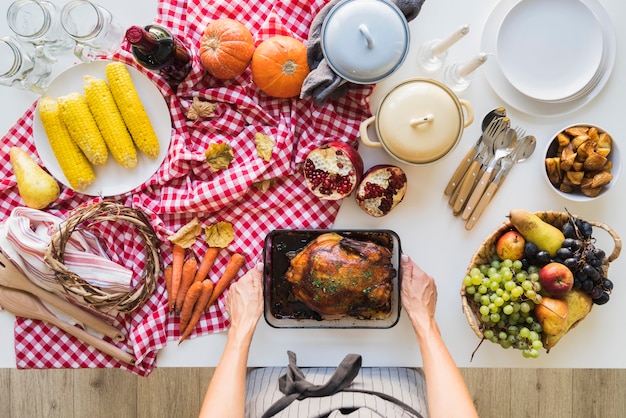
The Importance of Freshness: A Taste of Quality
Before we even think about seasoning or roasting, we need a quality bird. I'm talking about a chicken that sings with freshness, plump and vibrant. You can usually spot a good one by its pale yellow skin, a sign of a healthy bird. And don't forget to give it a sniff; a clean, slightly sweet aroma is a surefire indicator of freshness.
whole chicken vs. chicken pieces: A Matter of Choice
Personally, I'm a big fan of whole chickens. There's something satisfying about pulling apart a juicy bird at the table, enjoying that warm, comforting aroma. But if you're cooking for just one or two, a few chicken pieces will do the trick.
Size Matters: Feeding the Crowd
When choosing a whole chicken, consider how many hungry mouths you need to feed. For a family of four, a 1.5-2kg bird is a good starting point. And remember, you can always ask the butcher to butterfly the chicken, making for quicker cooking and a beautiful presentation.
(Part 2) Prepping for Perfection: The Art of Preparation
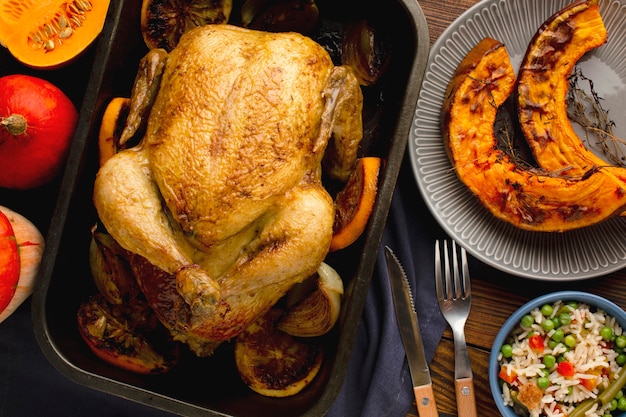
Pat it Dry: The Key to crispy skin
The first step in prepping your chicken is to pat it dry with kitchen paper. This removes excess moisture, which can prevent the skin from achieving that gloriously crispy texture.
The Art of Seasoning: Unleashing Flavour
Seasoning is where the magic truly begins. While salt and pepper are the essential foundation, don't be afraid to get creative. I love adding a sprinkle of herbs like rosemary, thyme, and sage. You can also experiment with citrus zest, garlic powder, or even a pinch of paprika. Remember, flavour is a journey, not a destination!
The Trusty Truss: Ensuring Even Cooking
Trussing your chicken, which involves tying the legs and wings together, isn't strictly necessary, but it does make a difference. It helps the chicken cook evenly and prevents the breast from drying out. Think of it as a culinary hug, ensuring every part gets the perfect amount of heat.
Don't Forget the Cavity: A Flavourful Haven
The cavity of the chicken is a blank canvas for flavour. I like to stuff it with chopped onions, garlic cloves, and a few sprigs of herbs. This creates a symphony of aromas and adds a beautiful depth of flavour to the meat.
(Part 3) Roasting to Perfection: Achieving Culinary Bliss
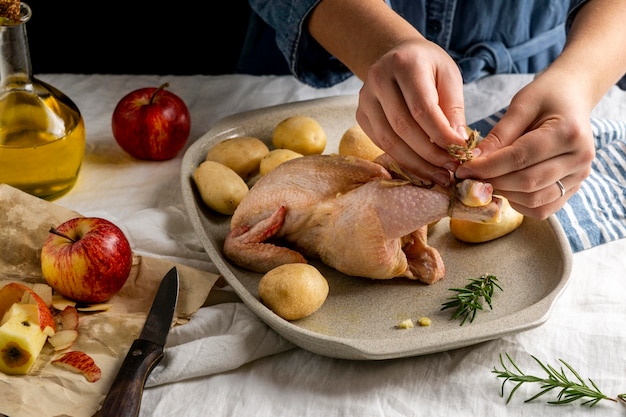
The Right Temperature: Low and Slow is the Way to Go
The golden rule of roasting chicken is to cook it low and slow. I recommend a temperature of 180°C (350°F). This gentle heat ensures that the meat cooks evenly and stays incredibly juicy. It's all about patience and letting the flavors develop slowly.
The Timing Game: A Matter of Size
The time it takes to roast a chicken depends on its size. As a rule of thumb, allow about 30-40 minutes per kilogram (2-3 hours for a 1.5-2kg chicken). Use a meat thermometer to check for doneness, aiming for an internal temperature of 74°C (165°F).
The Secret to Crispy Skin: Unveiling the Golden Crust
You want that beautiful, golden-brown skin, right? Here's the trick: roast the chicken uncovered. This allows the skin to crisp up beautifully, creating a delightful textural contrast.
(Part 4) Making it a Feast: Elevate Your Dinner
The Best roast chicken sides: A Symphony of Flavors
Roast chicken is incredibly versatile, pairing beautifully with a variety of sides. Roasted vegetables like carrots, potatoes, and Brussels sprouts complement the richness of the chicken perfectly. And don't forget about a lovely green salad for a touch of freshness.
Gravy - The Finishing Touch: A Rich, Savory Delight
No roast chicken is complete without gravy. To make a simple gravy, deglaze the pan after cooking the chicken with some stock or wine. Then, thicken it with a little flour or cornstarch. The result? A delicious, rich, and flavorful sauce that elevates your roast chicken to new heights.
Don't Forget the Leftovers: A Culinary Treasure
Let's be honest, sometimes you end up with more roast chicken than you can handle. But don't despair! leftover roast chicken is a culinary treasure. You can use it for sandwiches, salads, or even make a delicious chicken pie.
(Part 5) Troubleshooting: Dealing with Dry Chicken
Undercooked?
You might have overestimated the cooking time. Use a meat thermometer to check the internal temperature. If it's not at 74°C (165°F), pop it back in the oven for a few more minutes.
Overcooked?
If you find yourself with dry, overcooked chicken, there's a simple fix. Add some moisture back in by making a quick pan sauce. Deglaze the pan with a little wine or stock, and whisk in some butter or cream. This will help revitalize the chicken and create a delicious sauce.
(Part 6) Roast chicken recipes: A culinary journey
Basic Roast Chicken: A Classic Recipe
Ingredients:
1 whole chicken (1.5-2kg)
2 tbsp olive oil
1 tsp salt
1/2 tsp black pepper
1 onion, chopped
2 garlic cloves, crushed
1 sprig rosemary
1 sprig thyme
Instructions:
1. Preheat oven to 180°C (350°F).
2. Pat the chicken dry and rub it with olive oil, salt, and pepper.
3. Place the onion, garlic, rosemary, and thyme in the cavity of the chicken.
4. Truss the chicken.
5. Place the chicken in a roasting pan and roast for 1.5-2 hours, or until the internal temperature reaches 74°C (165°F).
Lemon and Herb Roast Chicken: A Zesty Delight
Ingredients:
1 whole chicken (1.5-2kg)
2 tbsp olive oil
1 tsp salt
1/2 tsp black pepper
Zest of 1 lemon
1 tbsp lemon juice
1 tbsp chopped parsley
1 tbsp chopped thyme
Instructions:
1. Preheat oven to 180°C (350°F).
2. Pat the chicken dry and rub it with olive oil, salt, pepper, lemon zest, and lemon juice.
3. Place the parsley and thyme in the cavity of the chicken.
4. Truss the chicken.
5. Place the chicken in a roasting pan and roast for 1.5-2 hours, or until the internal temperature reaches 74°C (165°F).
Honey Garlic Roast Chicken: A Sweet and Savory Sensation
Ingredients:
1 whole chicken (1.5-2kg)
2 tbsp olive oil
1 tsp salt
1/2 tsp black pepper
2 tbsp honey
1 tbsp garlic, minced
Instructions:
1. Preheat oven to 180°C (350°F).
2. Pat the chicken dry and rub it with olive oil, salt, pepper, honey, and garlic.
3. Place the chicken in a roasting pan and roast for 1.5-2 hours, or until the internal temperature reaches 74°C (165°F).
(Part 7) Beyond the Basic Roast: Creative Variations
Spice it Up: A Touch of Heat
For those who like a little heat, try adding some chili flakes or smoked paprika to the seasoning mix. This will add a fiery kick to your chicken, transforming it into a bold and exciting dish.
Citrus Burst: A Zesty Twist
Instead of just lemon, experiment with orange, grapefruit, or lime zest. The citrus zest will add a bright, tangy flavour to your chicken, creating a refreshingly complex taste profile.
Mediterranean Delight: A Taste of the Sun
Incorporate Mediterranean flavours with herbs like oregano, basil, and rosemary, alongside sun-dried tomatoes and olives. This combination creates a vibrant and fragrant roast chicken that transports you to the shores of the Mediterranean.
(Part 8) Mastering the Art of Leftover Chicken: Culinary Creativity
chicken salad: A Classic comfort food
This classic is a must-try! Simply combine shredded chicken with mayonnaise, celery, onion, and your favourite herbs. Add a pinch of salt and pepper, and you've got a delicious and satisfying salad that's perfect for lunch or a light dinner.
Chicken Soup: A Hearty and Comforting Meal
A hearty and comforting soup is always a winner. Use leftover chicken bones to make a rich and flavorful stock. Then, add shredded chicken, vegetables, and your favorite herbs for a heartwarming and nourishing meal.
Chicken Curry: A Spicy and Aromatic Delight
Spice things up with a fragrant curry. You can use leftover chicken to make a quick and easy curry dish. Combine the chicken with your favourite curry paste, coconut milk, and vegetables for a flavourful and satisfying meal.
Chicken Enchiladas: A Mexican Fiesta
Get creative with Mexican flavours. Use leftover chicken to fill tortillas with beans, cheese, and salsa. Bake them in the oven until golden brown and bubbly for a delicious and satisfying dish.
(Part 9) The Roast Chicken Cheat Sheet: A Culinary Guide
| Step | What to Do |
|---|---|
| 1. Choosing the Chicken | Choose a fresh, plump chicken with a pale yellow skin. |
| 2. Prepping the Chicken | Pat it dry, season it well, and consider trussing it. |
| 3. Roasting the Chicken | Roast at a low and slow temperature (180°C/350°F). |
| 4. Checking for Doneness | Use a meat thermometer to ensure the internal temperature reaches 74°C (165°F). |
| 5. Creating Gravy | Deglaze the pan with stock or wine and thicken it with flour or cornstarch. |
| 6. Enjoying Leftovers | Use leftover chicken for sandwiches, salads, soups, or curries. |
FAQs
1. What is the best way to prevent the chicken from drying out?
Roasting at a low temperature (180°C/350°F) and ensuring that the chicken is properly seasoned and cooked to the right internal temperature (74°C/165°F) will help prevent drying out. Additionally, you can try basting the chicken with butter or broth during the cooking process to add moisture.
2. How can I tell if the chicken is cooked through?
The best way to check for doneness is to use a meat thermometer. It should reach an internal temperature of 74°C (165°F) in the thickest part of the thigh. If you don't have a thermometer, you can check by piercing the thickest part of the thigh with a knife. The juices should run clear, not pink.
3. How long should I roast a chicken?
The roasting time will depend on the size of the chicken. As a general rule, allow about 30-40 minutes per kilogram (2-3 hours for a 1.5-2kg chicken).
4. Can I roast a chicken in a slow cooker?
Yes, you can roast a chicken in a slow cooker. It's a great way to achieve tender and juicy results. Simply place the seasoned chicken in the slow cooker, add some broth or vegetables, and cook on low for 6-8 hours.
5. What are some tips for making crispy chicken skin?
To get crispy chicken skin, roast the chicken uncovered and make sure to pat it dry before seasoning. You can also try rubbing the skin with a little bit of oil or salt before roasting to help it crisp up. And don't be afraid to move the chicken around in the pan during cooking to ensure even browning.
Everyone is watching

How to Cook Frozen Lobster Tails Perfectly: A Step-by-Step Guide
RecipesLobster. Just the word conjures up images of lavish meals, special occasions, and a taste of luxury. But let's...

Pigs in a Blanket Cooking Time: How Long to Bake for Perfect Results
RecipesAh, pigs in a blanket. Just the name conjures up images of those delightful little parcels of crispy pastry en...

Pork Fillet Cooking Time: How Long to Cook It Perfectly
RecipesPork fillet, or tenderloin as it's sometimes called, is a real favourite in our house. It's so versatile, and...
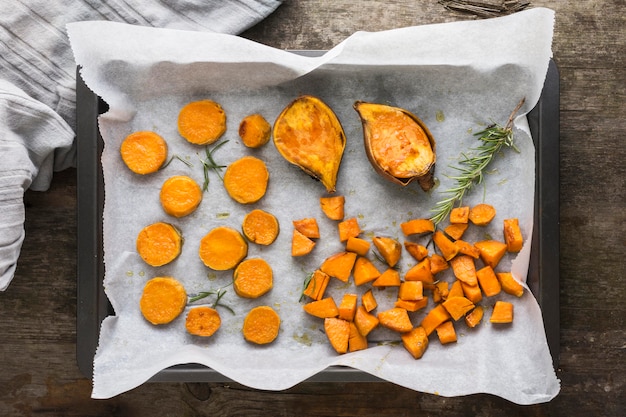
The Ultimate Guide to Cooking Sweet Potatoes: From Roasting to Mashing
RecipesSweet potatoes. Just the name conjures up images of warm, comforting dishes, bursts of vibrant color, and a to...
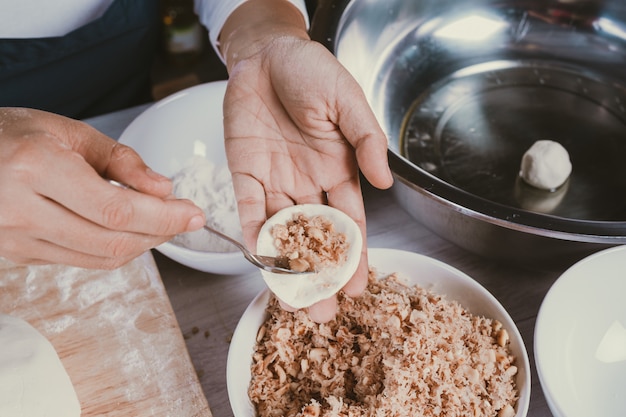
The Ultimate Guide to Tender, Juicy Pulled Pork
RecipesRight, let's talk pulled pork. It's one of those dishes that just screams "comfort food," doesn't it? I mean...
